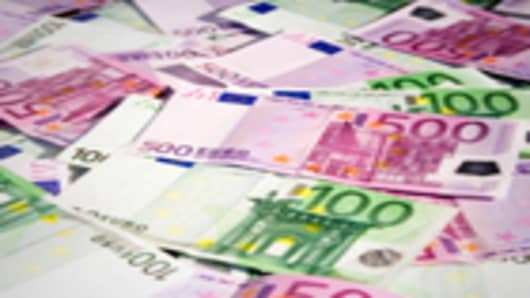Even after the Senate approves a bill, the final shape of legislation will still be unclear. The Senate bill will have to be reconciled with a bill passed previously by the House of Representatives.
"It all adds up to the same thing, which is a pretty big hit to the forward earnings outlook. It is also unclear for what it means for credit creation and the economy," he said.
"The problem with fin reg here is if you get a vote on, let's say Thursday night, you've got headline risk the day before an (options) expiration. Just from a market perspective, that's added a level of complexity. That's just not what traders want to deal with," Knapp said.
Goldman Sachs analysts Monday issued a report saying the proposals so far in the regulatory reform bill present about 20 percent risk to normalized earnings per share for banks. They also said the moves in CDS and options markets imply the stocks of financials may be about 6 percent too expensive.
Widely followed bank analyst Meredith Whitney also Monday said that she would avoid the group, as regulatory reform will dent their earnings and restrict lending.
On Tuesday, Sen. Christopher Dodd, D-Conn. made moves to compromise on a key and controversial feature of the Senate bill which would force banks to spin off their swaps desk. Dodd suggested a proposal to delay any ban on bank derivatives operations for two years while federal regulators study the potential impact. But Sen. Blanche Lincoln, D-Ark., who proposed the rule said she would fight any effort to weaken it.
What Else to Watch
Consumer price index inflation data is released at 8:30 a.m., and minutes of the Fed's last meeting will be released at 2 p.m.
Stanley said the market more likely than not will brush off the Fed minutes. "The meeting was before the European stuff came to a head...It's pretty clear to me that the Fed reaction in all of this has been pretty cautious and aggressive, opening up swap lines again and the rhetoric..It takes teeth out of any hawkish noise coming out of those minutes. People will dismiss it as old news. If it's dovish, people could say, 'geez, if they were dovish before all this happened, where are they now?'" he said.
Stanley said he had been expecting the Fed to move toward a tighter monetary policy by September, but now thinks the Fed will wait until next year because of the European situation.
Hewlett-Packard, meanwhile, may get some focus after it reported better-than-expected earnings and raised its full year outlook after Tuesday's bell. The company earned $2.2 billion on revenues of $30.8 billion.
Earnings Wednesday include Target ,Limited Brands , and Polo Ralph Lauren .
Knapp pointed to the decline in consumer discretionary stocks Tuesday, even after some good retail earnings.
"This is the stage in the economic cycle where you would expect consumer discretionary would have been a big winner, and it's not trading particularly well... Some of it's cyclical rotation..but I'm not so sure I want to say it's a bad sign about the economy. It does tell you there were a lot of people in the trade.
You put all these things together -- You have fin reg. You have the euro going down and you have retailers not responding to good earnings and that's making for a pretty good drubbing I suppose," said Knapp.
Who Dunnit?
The SEC and CFTC still don't know what caused the market plunge May 6, but they will continue to study it and they have six scenarios they are pursuing. Those include a mismatch in liquidity, disparate trading rules, and linkages between the decline in stock index products such as index ETFs and the e-mini S&P 500 futures.
They did say they found no evidence of a fat finger trade, computer hacking or terrorist activity but they could not completely rule out those possibilities either.
The SEC issued new rules on single stock circuit breakers, where it would require a five minute trading halt if the price declines by 10 percent in a five minute period.
More From CNBC.com:
Questions? Comments? Email us at marketinsider@cnbc.com.




